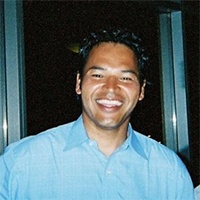Dundas Criminal Lawyer, Minnesota
SPONSORED LAWYERS
1-5 of 5 matches. Page 1 of 1
Jonathan Kim Reppe
✓ VERIFIEDCriminal, DUI-DWI, Divorce & Family Law, Real Estate, Business
Relax As We Lift Your Legal Worries Off Your Shoulders.
Mr. Reppe developed a passion for helping individuals with their legal problems while working as a public defender early in his career. He moved on to... (more)
107 6th Street, Northfield, MN 55057
Profile LAWPOINTS™57/100
LAWPOINTS™ measure the overall completeness of a Lawyer's profile. More complete profiles are ranked higher and help visitors select the right lawyer faster.
We help paid Members build more complete and informative profiles.
LAWPOINTS™ do not measure a Lawyer's reputation.
More Info for Lawyers
We help paid Members build more complete and informative profiles.
LAWPOINTS™ do not measure a Lawyer's reputation.
More Info for Lawyers
Lance R Heisler
✓ VERIFIEDBankruptcy & Debt, Misdemeanor
Lance R Heisler is a practicing lawyer in the state of Minnesota handling bankruptcy matters.
105 East 5Th Street, Northfield, MN 55057
Profile LAWPOINTS™55/100
LAWPOINTS™ measure the overall completeness of a Lawyer's profile. More complete profiles are ranked higher and help visitors select the right lawyer faster.
We help paid Members build more complete and informative profiles.
LAWPOINTS™ do not measure a Lawyer's reputation.
More Info for Lawyers
We help paid Members build more complete and informative profiles.
LAWPOINTS™ do not measure a Lawyer's reputation.
More Info for Lawyers
David William Jacobsen
Real Estate, Trusts, Estate, Wrongful Termination, Criminal
Status: In Good Standing
507 Division St, Northfield, MN 55057
Profile LAWPOINTS™34/100
LAWPOINTS™ measure the overall completeness of a Lawyer's profile. More complete profiles are ranked higher and help visitors select the right lawyer faster.
We help paid Members build more complete and informative profiles.
LAWPOINTS™ do not measure a Lawyer's reputation.
More Info for Lawyers
We help paid Members build more complete and informative profiles.
LAWPOINTS™ do not measure a Lawyer's reputation.
More Info for Lawyers
Faribault, MN 55021
Profile LAWPOINTS™24/100
LAWPOINTS™ measure the overall completeness of a Lawyer's profile. More complete profiles are ranked higher and help visitors select the right lawyer faster.
We help paid Members build more complete and informative profiles.
LAWPOINTS™ do not measure a Lawyer's reputation.
More Info for Lawyers
We help paid Members build more complete and informative profiles.
LAWPOINTS™ do not measure a Lawyer's reputation.
More Info for Lawyers
Faribault, MN 55021
Profile LAWPOINTS™22/100
LAWPOINTS™ measure the overall completeness of a Lawyer's profile. More complete profiles are ranked higher and help visitors select the right lawyer faster.
We help paid Members build more complete and informative profiles.
LAWPOINTS™ do not measure a Lawyer's reputation.
More Info for Lawyers
We help paid Members build more complete and informative profiles.
LAWPOINTS™ do not measure a Lawyer's reputation.
More Info for Lawyers
TIPS
Lawyer.com can help you easily and quickly find Dundas Criminal Lawyers and Dundas Criminal Law Firms. Refine your search by specific Criminal practice areas such as DUI-DWI, Expungement, Felony, Misdemeanor, RICO Act, White Collar Crime, Traffic and Juvenile Law matters.
LEGAL TERMS
DIRECTED VERDICT
A ruling by a judge, typically made after the plaintiff has presented all of her evidence but before the defendant puts on his case, that awards judgment to the... (more...)
A ruling by a judge, typically made after the plaintiff has presented all of her evidence but before the defendant puts on his case, that awards judgment to the defendant. A directed verdict is usually made because the judge concludes the plaintiff has failed to offer the minimum amount of evidence to prove her case even if there were no opposition. In other words, the judge is saying that, as a matter of law, no reasonable jury could decide in the plaintiff's favor. In a criminal case, a directed verdict is a judgement of acquittal for the defendant.
BURGLARY
The crime of breaking into and entering a building with the intention to commit a felony. The breaking and entering need not be by force, and the felony need no... (more...)
The crime of breaking into and entering a building with the intention to commit a felony. The breaking and entering need not be by force, and the felony need not be theft. For instance, someone would be guilty of burglary if he entered a house through an unlocked door in order to commit a murder.
FEDERAL COURT
A branch of the United States government with power derived directly from the U.S. Constitution. Federal courts decide cases involving the U.S. Constitution, fe... (more...)
A branch of the United States government with power derived directly from the U.S. Constitution. Federal courts decide cases involving the U.S. Constitution, federal law--for example, patents, federal taxes, labor law and federal crimes, such as robbing a federally chartered bank--and cases where the parties are from different states and are involved in a dispute for $75,000 or more.
JURY
Criminal Law Traffic TicketshomeGLOSSARY jury A group of people selected to apply the law, as stated by the judge, to the facts of a case and render a decision,... (more...)
Criminal Law Traffic TicketshomeGLOSSARY jury A group of people selected to apply the law, as stated by the judge, to the facts of a case and render a decision, called the verdict. Traditionally, an American jury was made up of 12 people who had to arrive at a unanimous decision. But today, in many states, juries in civil cases may be composed of as few as six members and non-unanimous verdicts may be permitted. (Most states still require 12-person, unanimous verdicts for criminal trials.) Tracing its history back over 1,000 years, the jury system was brought to England by William the Conqueror in 1066. The philosophy behind the jury system is that--especially in a criminal case--an accused's guilt or innocence should be judged by a group of people from her community ('a jury of her peers'). Recently, some courts have been experimenting with increasing the traditionally rather passive role of the jury by encouraging jurors to take notes and ask questions.
SPECIFIC INTENT
An intent to produce the precise consequences of the crime, including the intent to do the physical act that causes the consequences. For example, the crime of ... (more...)
An intent to produce the precise consequences of the crime, including the intent to do the physical act that causes the consequences. For example, the crime of larceny is the taking of the personal property of another with the intent to permanently deprive the other person of the property. A person is not guilty of larceny just because he took someone else's property; it must be proven that he took it with the purpose of keeping it permanently.
HUNG JURY
A jury unable to come to a final decision, resulting in a mistrial. Judges do their best to avoid hung juries, typically sending juries back into deliberations ... (more...)
A jury unable to come to a final decision, resulting in a mistrial. Judges do their best to avoid hung juries, typically sending juries back into deliberations with an assurance (sometimes known as a 'dynamite charge') that they will be able to reach a decision if they try harder. If a mistrial is declared, the case is tried again unless the parties settle the case (in a civil case) or the prosecution dismisses the charges or offers a plea bargain (in a criminal case).
BAIL BOND
The money posted by a 'bondsman' for a defendant who cannot afford his bail. The defendant pays a certain portion, usually 10%. If the defendant fails to appear... (more...)
The money posted by a 'bondsman' for a defendant who cannot afford his bail. The defendant pays a certain portion, usually 10%. If the defendant fails to appear for a court hearing, the judge can issue a warrant for his arrest and threaten to 'forfeit,' or keep, the money if the defendant doesn't appear soon. Usually, the bondsman will look for the defendant and bring him back, forcefully if necessary, in order to avoid losing the bail money.
GRAND JURY
In criminal cases, a group that decides whether there is enough evidence to justify an indictment (formal charges) and a trial. A grand jury indictment is the f... (more...)
In criminal cases, a group that decides whether there is enough evidence to justify an indictment (formal charges) and a trial. A grand jury indictment is the first step, after arrest, in any formal prosecution of a felony.
HOMICIDE
The killing of one human being by the act or omission of another. The term applies to all such killings, whether criminal or not. Homicide is considered noncrim... (more...)
The killing of one human being by the act or omission of another. The term applies to all such killings, whether criminal or not. Homicide is considered noncriminal in a number of situations, including deaths as the result of war and putting someone to death by the valid sentence of a court. Killing may also be legally justified or excused, as it is in cases of self-defense or when someone is killed by another person who is attempting to prevent a violent felony. Criminal homicide occurs when a person purposely, knowingly, recklessly or negligently causes the death of another. Murder and manslaughter are both examples of criminal homicide.
SAMPLE LEGAL CASES
State v. Timberlake
... The United States Supreme Court has held that "an officer may, consistent with the Fourth
Amendment, conduct a brief, investigatory stop when the officer has, a reasonable, articulable
suspicion that criminal activity is afoot." Illinois v. Wardlow, 528 US 119, 123, 120 S.Ct. ...
State v. SLH
... Roberta B. Walburn, Anne M. Lockner, Robins, Kaplan, Miller & Ciresi LLP, Minneapolis, MN,
for amicus curiae Council on Crime and Justice. Daniel L. Gerdts, Brink & Gerdts, PA, Minneapolis,
MN, for amicus curiae Minnesota Association of Criminal Defense Lawyers. ...
State v. Jackson
... Concluding the departure was impermissibly based on uncharged criminal conduct, we reverse
and remand for resentencing. ... Sent. Guidelines I). Accordingly, the "primary relevant sentencing
criteria" are the "offense of conviction and the offender's criminal history." Id. ...
FILTER BY:
- Free Consultation
- Male
- Female
- Suspended
PRACTICE AREAS
- Accident & Injury
- Bankruptcy & Debt
- Business
- Civil & Human Rights
- Consumer Rights
- Criminal
- -DUI-DWI
- -Expungement
- -Felony
- -Misdemeanor
- -RICO Act
- -White Collar Crime
- -Traffic
- -Juvenile Law
- Divorce & Family Law
- Employment
- Environmental Law
- Estate
- Government
- Health Care
- Immigration
- Industry Specialties
- Intellectual Property
- International
- Lawsuit & Dispute
- Mass Torts
- Motor Vehicle
- Real Estate
- Tax
- Other



